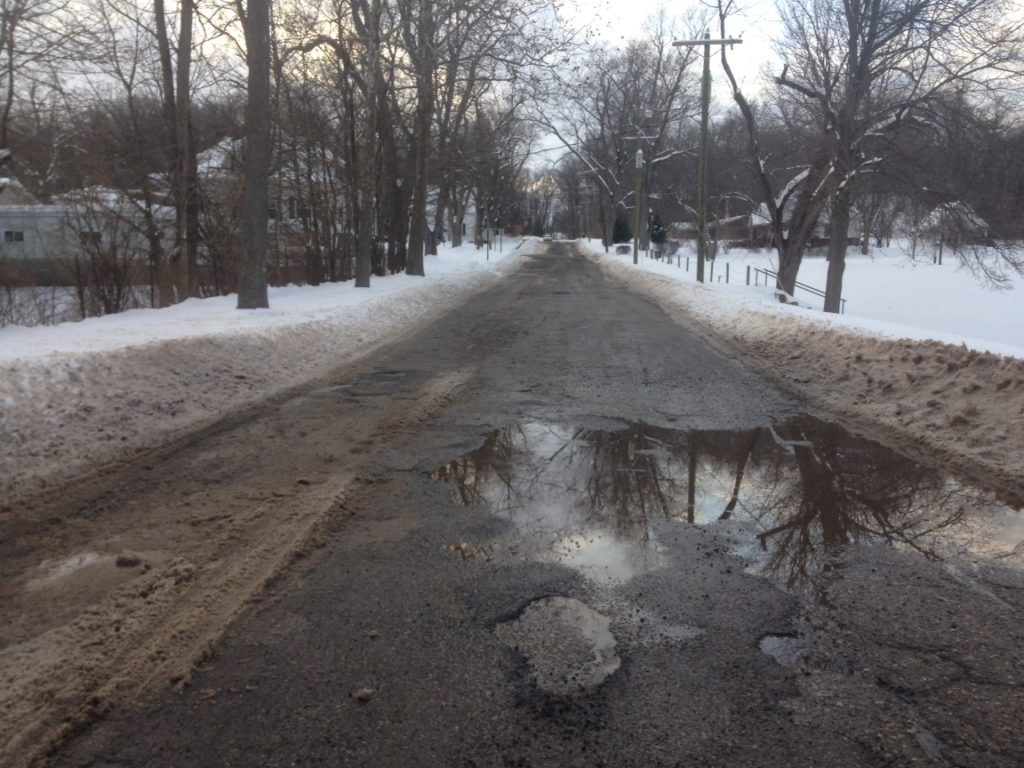
Just a few administrative steps remain before construction can begin on Garden, Vine, and Mead streets and Rippon Avenue. Hillsdale City Council on Monday officially awarded the contract to the asphalt subcontractor that bid lowest.
The project, aimed at eliminating flooding, back-ups, and preventing sewage from getting flushed into the St. Joe River, will involve replacing sewer and water mains and installing a new concrete culvert on Rippon Street. DuBois Trucking and Excavating won the chance to take on the project.
“This is not a simple repave project, or simple reconstruct things,” Director of Public Services Jake Hammel said. “Our proximity to the river complicates the project and drives up the cost.”
Hillsdale received a $1.9 million grant from the Michigan Economic Development Corporation to do this project, with the city’s street improvement fund and the Board of Public Utilities covering the remaining costs. The city earmarked $665,000 for road construction, and the BPU budgeted $100,000 for this year and will budget additional funds for the 2018 fiscal year starting July 1.
The city received six bids for the project. The lowest bid was $2,591,887, but the final price tag — $2,766,887 — includes a contingency fund in case things don’t go according to plan once the contractors start digging.
“We had hoped the numbers would have come in lower, but given the economy, things seem to be doing better and contractors are able to request a higher price,” City Manager Dave Mackie said. “It also included many local contractors, which the council felt was very important, particularly if they have the skills necessary to get it done.”
One way the city managed to lower costs was by choosing a local contractor — DuBois Trucking and Excavating, which Mackie said has worked with the city for many years — eliminating transportation, lodging, and food costs for employees.
One place the money isn’t coming from is property taxes, according to Hammel. He said that public safety (police and fire) takes 100 percent of tax dollars. Aside from grant money, only funds generated from Act 51, a statewide revenue sharing program that collects and redistributes money from gas taxes and vehicle registration fees, go to infrastructure projects.
He also said that the three millage rate approved last year had to be reallocated from street project funding, pushing back other street projects at least one year as a result.
For Dennis Wainscott, who has lived on Garden Street for about 18 years and watched big trucks tear up the road during repairs to Carleton Road, improvements to the road have been a long time in coming. He’s attended every council meeting, and had talked to Mackie about the project’s progress.
“With Jake being in charge, him and his crew are doing a much better job,” he said.
He agreed that having a local contractor is a good thing, saying that the city should use more local people if possible.
Mackie said he has heard many stories of bad roads from residents who have lived in those areas for 20 or more years.
“They’ll have to have a patience, when it’s done, scheduled for September or October of this year, they’ll have a very nice street to be proud of,” Mackie said.
Wainscott anticipates the construction will complicate things for his wife, who drives, and said he hopes that the contractors will work on half the street at a time so they can park on the other side.
“It’ll be rough,” Wainscott said, “but in the long run, it’ll be worth it.”

